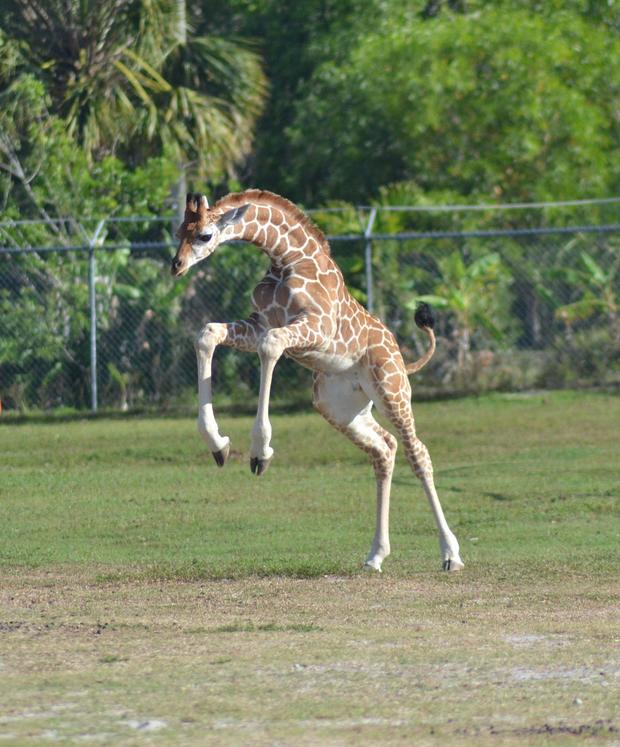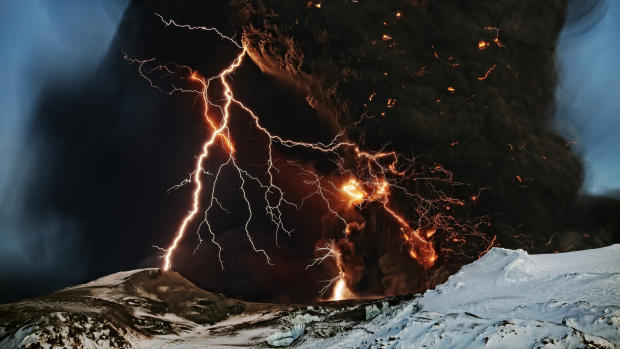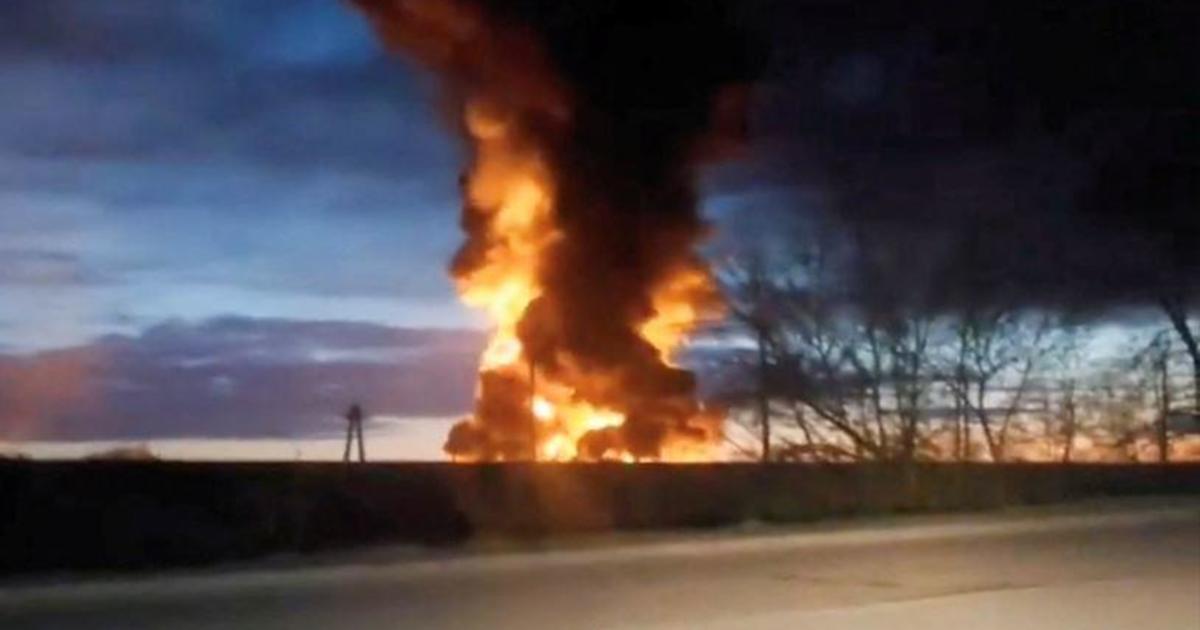Lightning strike kills two giraffes at Florida zoo
An rare tragedy struck a Florida zoo recently when two giraffes were killed by lightning, Lion Country Safari in Loxahatchee, Florida announced on Facebook.
"Lily and Jioni were in the pasture in their habitat when a severe thunderstorm quickly developed 6 weeks ago," the zoo wrote. "Recent pathology results confirm that the giraffe did pass as a result of the lightning and that the manner of their passing was instantaneous." The zoo said they waited to receive the pathology results before sharing information about the deaths.
The zoo said the two animal will "be sorely missed." The zoo staff is devastated by the tragic loss, the post reads. "We continue to mourn our two incredibly lovely and charismatic giraffe."
The zoo said the giraffes "do have access to numerous shelters in the multi-acre habitat, if they choose to use them." But in Florida, lightning strikes are just more common than elsewhere.
The state is the "lightning capital," Amitabh Nag, a scientist at the Florida Institute of Technology, told CBS News in 2017. "So one thing we know about Florida, it is hot and humid -- and it is precisely this reason why we have a lot of lightning," Nag said. Because two warm bodies surround the peninsula, and the sea breeze brings hot air inland, towering thunderclouds form.
Lightning caused 52 deaths in the state between 2007 and 2017, and it may seem like lightning strikes are becoming more common across the U.S. However, the number of deaths cause by lightning have actually decreased over the past decade, John Jensenius, a lightning specialist for the National Weather Service told CBS News.
The number of deaths decreased because there is more awareness, Jensenius said. The National Weather Service began a lightning safety campaign in 2001, including the first national Lightning Safety Awareness Week.
If it seems like lightning strikes are still surging, that's because we are currently in peak season. "More than 70 percent of the lightning deaths occurred in the months of June, July, and August, with Saturdays and Sundays having slightly more deaths than other days of the week," Jensenius said.






